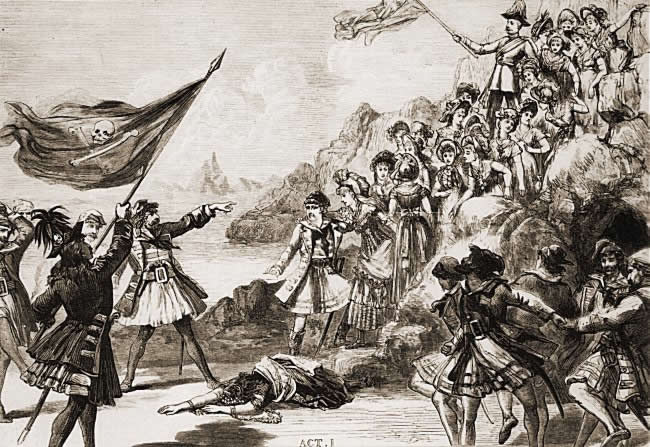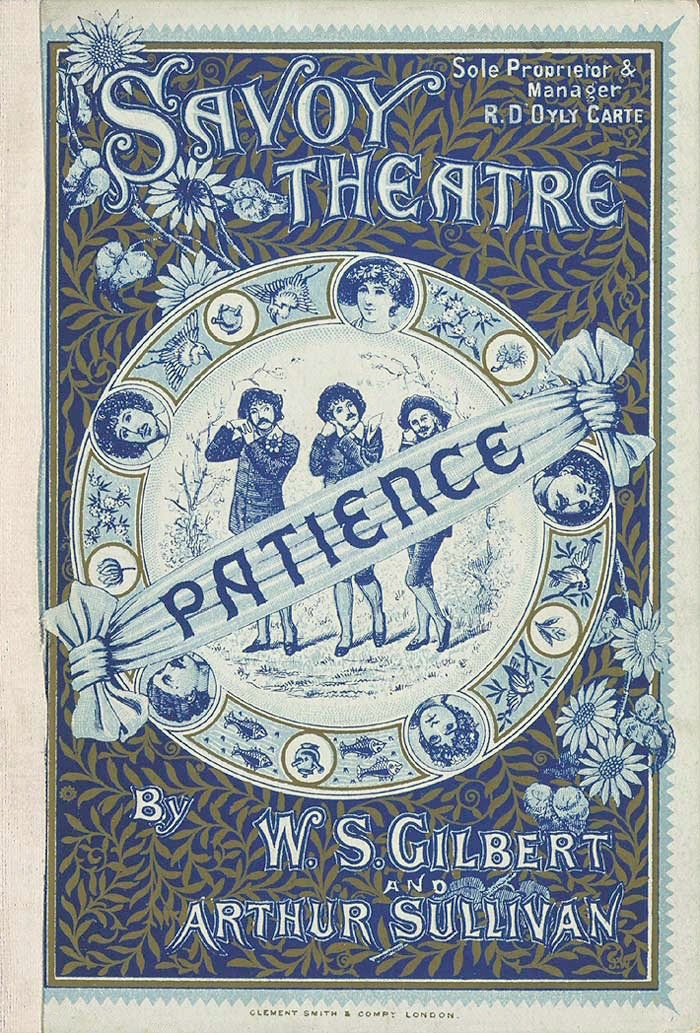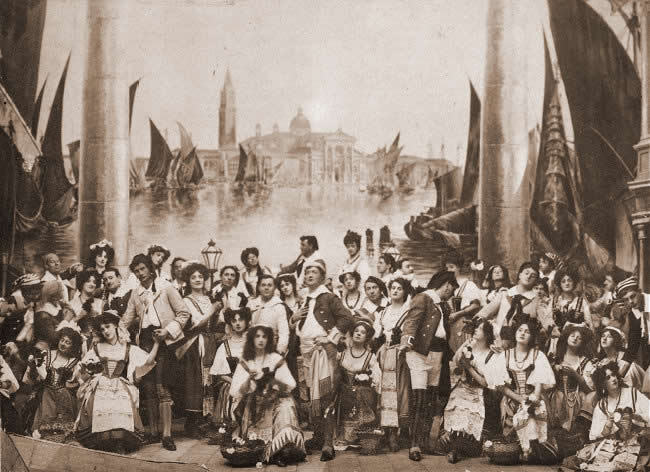|
List Of Patter Songs
This is a list of some of the best known patter songs. Pre-Gilbert and Sullivan * Auber: ''Le domino noir'' – "Je suis sauvée enfin" * Cornelius: ''Der Barbier von Bagdad'' – "Bin Akademiker, Doktor und Chemiker" * Donizetti: '' L'elisir d'amore'' – "Udite, Udite, o rustici", middle section (Dulcamara) * Donizetti: ''Don Pasquale'' – "Cheti, cheti, immantinente", final section (duet for Don Pasquale and Doctor Malatesta) * Glinka: '' Ruslan and Lyudmila'' – Farlaf's Rondo «Близок уж час торжества моего» (Farlaf) * Mozart: ''Marriage of Figaro'' – "La vendetta, oh, la vendetta", final section (Bartolo) * Mozart: '' Don Giovanni'' – "Fin ch'han dal vino" (Don Giovanni) * Mozart: ''Die Entführung aus dem Serail'' – "Solche hergelaufne Laffen", especially the final section of the aira (Osmin) * Mozart: "Clarice cara mia sposa", aria for Tenor, K. 256 * Rossini: ''Il Barbiere di Siviglia'' – ... [...More Info...] [...Related Items...] OR: [Wikipedia] [Google] [Baidu] |
Patter Song
The patter song is characterised by a moderately fast to very fast tempo with a rapid succession of rhythmic patterns in which each syllable of text corresponds to one note. It is a staple of comic opera, especially Gilbert and Sullivan, but it has also been used in musicals and elsewhere."Patter song" ''OnMusic Dictionary'', Connect For Education, Inc, accessed 2 May 2014 The lyric of a patter song generally features tongue-twisting rhyming text, with words and other consonant or vowel sounds that are intended to be en ... [...More Info...] [...Related Items...] OR: [Wikipedia] [Google] [Baidu] |
La Cenerentola
' ('' Cinderella, or Goodness Triumphant'') is an operatic ''dramma giocoso'' in two acts by Gioachino Rossini. The libretto was written by Jacopo Ferretti, based on the libretti written by Charles-Guillaume Étienne for the opera ''Cendrillon'' with music by Nicolas Isouard (first performed Paris, 1810) and by Francesco Fiorini for ' with music by Stefano Pavesi (first performed Milan, 1814). All these operas are versions of the fairy tale ''Cendrillon'' by Charles Perrault. Rossini's opera was first performed in Rome's Teatro Valle on 25 January 1817. Rossini composed ''La Cenerentola'' when he was 25 years old, following the success of ''The Barber of Seville'' the year before. ''La Cenerentola'', which he completed in a period of three weeks, is considered to have some of his finest writing for solo voice and ensembles. Rossini saved some time by reusing an overture from ''La gazzetta'' and part of an aria from ''The Barber of Seville'' and by enlisting a collaborator, Luca ... [...More Info...] [...Related Items...] OR: [Wikipedia] [Google] [Baidu] |
Major-General's Song
"I Am the Very Model of a Modern Major-General" (often referred to as the "Major-General's Song" or "Modern Major-General's Song") is a patter song from Gilbert and Sullivan's 1879 comic opera ''The Pirates of Penzance''. It has been called the most famous Gilbert and Sullivan patter song. Sung by Major-General Stanley at his first entrance, towards the end of Act I, the character introduces himself by presenting his résumé and admitting to a few shortcomings. The song satirises the idea of the "modern" educated British Army officer of the latter 19th century. The song is replete with historical and cultural references, in which the Major-General describes his impressive and well-rounded education in non-military matters, but he says that his military knowledge has "only been brought down to the beginning of the century". The stage directions in the libretto state that at the end of each verse the Major-General is "bothered for a rhyme". Interpolated business occurs here, and ... [...More Info...] [...Related Items...] OR: [Wikipedia] [Google] [Baidu] |
The Pirates Of Penzance
''The Pirates of Penzance; or, The Slave of Duty'' is a comic opera in two acts, with music by Arthur Sullivan and libretto by W. S. Gilbert. Its official premiere was at the Fifth Avenue Theatre in New York City on 31 December 1879, where it was well received by both audiences and critics. Its London debut was on 3 April 1880, at the Opera Comique, where it ran for 363 performances. The story concerns Frederic, who, having completed his 21st year, is released from his apprenticeship to a band of tender-hearted pirates. He meets the daughters of Major-General Stanley, including Mabel, and the two young people fall instantly in love. Frederic soon learns, however, that he was born on the 29th of February, and so, technically, he has a birthday only once each leap year. His indenture specifies that he remain apprenticed to the pirates until his "twenty-first birthday", meaning that he must serve for another 63 years. Bound by his own sense of duty, Frederic's only sol ... [...More Info...] [...Related Items...] OR: [Wikipedia] [Google] [Baidu] |
Patience (operetta)
''Patience; or, Bunthorne's Bride'', is a comic opera in two acts with music by Arthur Sullivan and libretto by W. S. Gilbert. The opera is a satire on the aesthetic movement of the 1870s and '80s in England and, more broadly, on fads, superficiality, vanity, hypocrisy and pretentiousness; it also satirises romantic love, rural simplicity and military bluster. First performed at the Opera Comique, London, on 23 April 1881, ''Patience'' moved to the 1,292-seat Savoy Theatre on 10 October 1881, where it was the first theatrical production in the world to be lit entirely by electric light. Henceforth, the Gilbert and Sullivan comic operas would be known as the Savoy Operas, and both fans and performers of Gilbert and Sullivan would come to be known as "Savoyards." ''Patience'' was the sixth operatic collaboration of fourteen between Gilbert and Sullivan. It ran for a total of 578 performances, which was seven more than the authors' earlier work, ''H.M.S. Pinafore'', and the ... [...More Info...] [...Related Items...] OR: [Wikipedia] [Google] [Baidu] |
The Mikado
''The Mikado; or, The Town of Titipu'' is a comic opera in two acts, with music by Arthur Sullivan and libretto by W. S. Gilbert, their ninth of fourteen Gilbert and Sullivan, operatic collaborations. It opened on 14 March 1885, in London, where it ran at the Savoy Theatre for 672 performances, the second-longest run for any work of musical theatre and one of the longest runs of any theatre piece up to that time.The longest-running piece of musical theatre was the operetta ''Les Cloches de Corneville'', which held the title until ''Dorothy (opera), Dorothy'' opened in 1886, which pushed ''The Mikado'' down to third place. By the end of 1885, it was estimated that, in Europe and America, at least 150 companies were producing the opera.H. L. Mencken, Mencken, H. L.]Article on ''The Mikado'', ''Baltimore Evening Sun'', 29 November 1910 ''The Mikado'' is the most internationally successful Savoy opera and has been especially popular with amateur and school productions. The work has ... [...More Info...] [...Related Items...] OR: [Wikipedia] [Google] [Baidu] |
Iolanthe
''Iolanthe; or, The Peer and the Peri'' () is a comic opera with music by Arthur Sullivan and libretto by W. S. Gilbert, first performed in 1882. It is one of the Savoy operas and is the seventh of fourteen operatic collaborations by Gilbert and Sullivan. In the opera, the fairy Iolanthe has been banished from fairyland because she married a mortal; this is forbidden by fairy law. Her son, Strephon, is an Arcadia (utopia), Arcadian shepherd who wants to marry Phyllis, a Ward (law), Ward of Court of Chancery, Chancery. All the members of the House of Lords, House of Peers also want to marry Phyllis. When Phyllis sees Strephon hugging a young woman (not knowing that it is his mother – immortal fairies all appear young), she assumes the worst and sets off a climactic confrontation between the peers and the fairies. The opera satire, satirises many aspects of British government, law and society. The confrontation between the fairies and the peers is a version of one of Gilbert's ... [...More Info...] [...Related Items...] OR: [Wikipedia] [Google] [Baidu] |
The Gondoliers
''The Gondoliers; or, The King of Barataria'' is a Savoy Opera, with music by Arthur Sullivan and libretto by W. S. Gilbert. It premiered at the Savoy Theatre on 7 December 1889 and ran for a very successful 554 performances (at that time the fifth longest-running piece of musical theatre in history), closing on 30 June 1891. This was the twelfth comic opera collaboration of fourteen between Gilbert and Sullivan. The story of the opera concerns the young bride of the heir to the throne of the fictional kingdom of Barataria who arrives in Venice to join her husband. It turns out, however, that he cannot be identified, since he was entrusted to the care of a drunken gondolier who mixed up the prince with his own son. To complicate matters, the King of Barataria has just been killed. The two young gondoliers must now jointly rule the kingdom until the nurse of the prince can be brought in to determine which of them is the rightful king. Moreover, when the young queen arrives ... [...More Info...] [...Related Items...] OR: [Wikipedia] [Google] [Baidu] |
Gilbert And Sullivan
Gilbert and Sullivan was a Victorian era, Victorian-era theatrical partnership of the dramatist W. S. Gilbert (1836–1911) and the composer Arthur Sullivan (1842–1900), who jointly created fourteen comic operas between 1871 and 1896, of which ''H.M.S. Pinafore'', ''The Pirates of Penzance'' and ''The Mikado'' are among the best known.Davis, Peter G''Smooth Sailing'' ''New York'' magazine, 21 January 2002, accessed 6 November 2007 Gilbert, who wrote the libretti for these operas, created fanciful "topsy-turvy" worlds where each absurdity is taken to its logical conclusion; fairies rub elbows with British lords, flirting is a capital offence, gondoliers ascend to the monarchy, and pirates emerge as noblemen who have gone astray.Mike Leigh, Leigh, Mike"True anarchists" ''The Guardian'', 4 November 2007, accessed 6 November 2007 Sullivan, six years Gilbert's junior, composed the music, contributing memorable melodies that could convey both humour and pathos. Their operas have enj ... [...More Info...] [...Related Items...] OR: [Wikipedia] [Google] [Baidu] |
University Of Michigan
, mottoeng = "Arts, Knowledge, Truth" , former_names = Catholepistemiad, or University of Michigania (1817–1821) , budget = $10.3 billion (2021) , endowment = $17 billion (2021)As of October 25, 2021. , president = Santa Ono , provost = Laurie McCauley , established = , type = Public research university , academic_affiliations = , students = 48,090 (2021) , undergrad = 31,329 (2021) , postgrad = 16,578 (2021) , administrative_staff = 18,986 (2014) , faculty = 6,771 (2014) , city = Ann Arbor , state = Michigan , country = United States , coor = , campus = Midsize City, Total: , including arboretum , colors = Maize & Blue , nickname = Wolverines , spor ... [...More Info...] [...Related Items...] OR: [Wikipedia] [Google] [Baidu] |
Cox And Box
''Cox and Box; or, The Long-Lost Brothers'', is a one-act comic opera with a libretto by F. C. Burnand and music by Arthur Sullivan, based on the 1847 farce '' Box and Cox'' by John Maddison Morton. It was Sullivan's first successful comic opera. The story concerns a landlord who lets a room to two lodgers, one who works at night and one who works during the day. When one of them has the day off, they meet each other in the room and tempers flare. Sullivan wrote this piece five years before his first opera with W. S. Gilbert, '' Thespis''. The piece premiered in 1866 and was seen a few times at charity benefits in 1867. Once given a professional production in 1869, it became popular, running for 264 performances and enjoying many revivals and further charity performances. During the 20th century, it was frequently played by the D'Oyly Carte Opera Company in an abridged version, as a curtain raiser for the shorter Gilbert and Sullivan operas. It has been played by numerous pr ... [...More Info...] [...Related Items...] OR: [Wikipedia] [Google] [Baidu] |
Arthur Sullivan
Sir Arthur Seymour Sullivan (13 May 1842 – 22 November 1900) was an English composer. He is best known for 14 comic opera, operatic Gilbert and Sullivan, collaborations with the dramatist W. S. Gilbert, including ''H.M.S. Pinafore'', ''The Pirates of Penzance'' and ''The Mikado''. His works include 24 operas, 11 major orchestral works, ten choral works and oratorios, two ballets, incidental music to several plays, and numerous church pieces, songs, and piano and chamber pieces. His hymns and songs include "Onward, Christian Soldiers" and "The Lost Chord". The son of a military bandmaster, Sullivan composed his first anthem at the age of eight and was later a soloist in the boys' choir of the Chapel Royal. In 1856, at 14, he was awarded the first Mendelssohn Scholarship by the Royal Academy of Music, which allowed him to study at the academy and then at the Felix Mendelssohn College of Music and Theatre, Leipzig Conservatoire in Germany. His graduation piece, inc ... [...More Info...] [...Related Items...] OR: [Wikipedia] [Google] [Baidu] |








.jpg)


